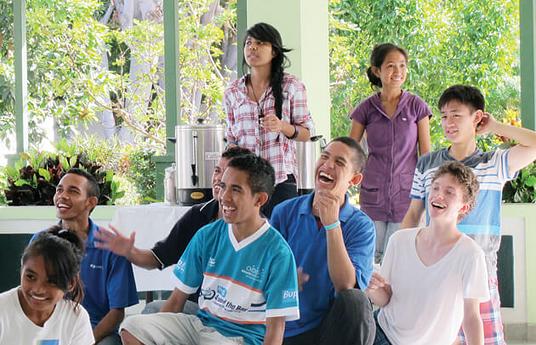This innovation was created to cater for the non-academic development of children at KEY academy. It includes socio-emotional learning, safeguarding, and 21st century skills. We believe that these skills are necessary for holistic development. Safeguarding is also very important, to ensure that if a child happens to be exposed to any form of harm or neglect, we are prepared to manage the situation
The team designed a curriculum in 2023, and created a schedule to facilitate bi-weekly socio-emotional learning sessions. These sessions are facilitated within our four learning groups; the topics and activities introduced to each learning group are age specific, based on the children’s developmental needs, as well as the social dynamics we have observed over time; our youngest children (ages 1.5-3) have topics such as friendship, honesty and sharing, while the oldest children (ages 7-9) are introduced to topics like conflict management, communication, and time management. The impact of these sessions are evaluated termly through observation, and are documented in the children’s learning journals at the end of the academic year. Additionally, members of the Whole Child Approach team have one-to-one conversations with the children ages 5 and above, twice a month. The purpose of these conversations is to assess their wellbeing, and get a sense of where they need intervention, if at all.
The Whole Child Approach began as an observational assessment method; we observed the children’s behaviours to identify areas requiring support or intervention through tailored learning activities and conversations with the children or their parents. As the process evolved, we designed a curriculum to guide the process and track their development over time. Based on our experience as educators, and research on the developmental milestones of children at various ages, we crafted context appropriate socio-emotional learning activities, for children between 18 months to 18 years old. Over the next few months, the KEY app currently being developed will feature a section dedicated to sharing details about how the ‘Whole Child Approach’ operates, and how other schools can adopt this process.
There are numerous resources that one can consult to find socio-emotional learning topics and craft a curriculum that accounts for the environmental needs and the peculiarities of the children’s personalities. Educators are also encouraged to sign up on the KEY app which will provide a framework for the Whole Child Approach, and can be adopted by any school, not just in Nigeria but globally!



